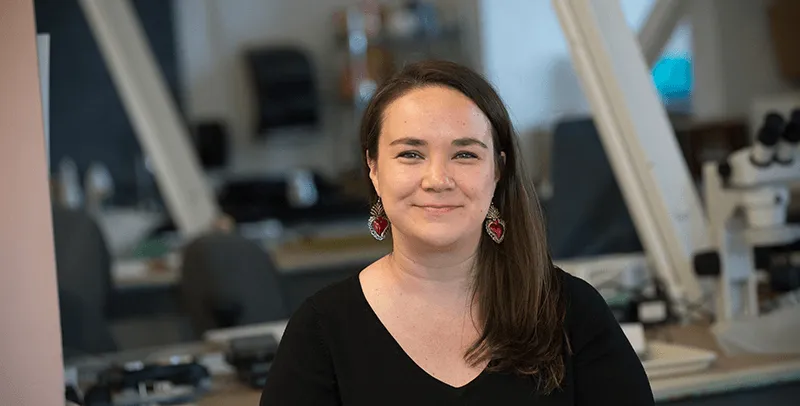When people think of Vermont, they often think of the state’s rich agricultural heritage, Holstein cows, award-winning cheeses and local foods.
Yet most of this agriculture relies on the labor of undocumented migrant workers, who have a hand in everything from milking the Holsteins and mucking out their stalls to picking apples and other crops. And yet, between the state’s northern Canadian border and recent federal immigration policies, living and working in Vermont brings many challenges — including access to health care, the risk of trauma and mental health issues — to a workforce the state relies so heavily upon.
Teresa Mares, an anthropologist at UVM and associate director of the Food Systems graduate program, works closely with migrant communities in her research and writing.
“Rural food system issues and food access issues are tightly connected with border politics,” Mares said. “Especially for undocumented workers in the dairy industry, because living and working in this border zone impacts their ability to get basic needs.”
To that end, Mares has been working collaboratively on a series of graphic novels — in conjunction with Open Door Clinic, the Vermont Folklife Center, UVM Extension Bridges to Health and Marek Bennett’s Comic Workshop — that allow immigrants to share their experiences and mental health traumas associated with traveling to Vermont with each other and form connections.
“We’ve been thinking about a really effective way of communicating with a community that isn’t going to sit down to read a two-hundred-page book and doesn’t have the time to do so, but might very well open an eight-page, mini graphic-novel and think, ‘Oh, well this person has had the same struggles that I have,’” said Mares. “We wondered what if we talked to farm workers about their experiences crossing the border, living and working in Vermont and being isolated. We allowed them the chance to tell their stories,” Mares said.
The same group of collaborators are working on a second project to make Vermont’s health care systems more accessible to non-English speakers, Mares said,
“Here we are looking at the perceptions that farm workers have about oral and dental health, because again, it’s one of the other big challenges that people face and not given the treatment that may be needed,” Mares said.
Due to the COVID-19 pandemic, anthropologists have had to rethink the way they conduct research, Mares said. “We’re doing surveys and we’re doing interviews. We’re doing them over the phone and over WhatsApp. And one of the things that I always have to remember is all of these farmers are continually communicating with their families that are back home in Mexico.”
And the inspiration for some of her current work draws from previous experiences with community work.
“In terms of especially looking at emotional and mental health concerns, I think facilitated group discussions can often be very powerful. One of the things that I participated in when I was the doctoral student was in Seattle was a women’s group that was basically a group of women who had immigrated to the United States. A lot of them were moms, not all of them, but a lot of them. And they had a weekly community group where people got together, they shared food, they shared the struggles they were having, they shared resources. I feel like in a lot of ways, that community centered approach can be a bit more appropriate, especially in places where people feel really isolated.”
This reworking of ethnographies allows a much broader group of people to understand, access, and connect with materials such as these, Mares said. More details about the collaborators’ previous graphic novels can be seen here.
Mares is also the author of Life on the Other Border, Farmworkers and Food Justice in Vermont (University of California Press, April 2019).
Lily Donnelly is a sophomore Global Studies major and an English Literature and Psychological Science double minor. She’s passionate about migrant justice, refugee resettlement, environmental justice, and more!
